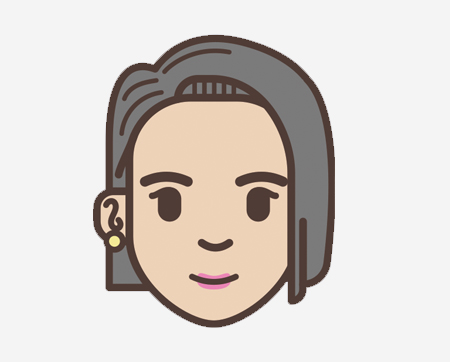
A mortgage is a long-term loan. It’s designed to help you buy a property. It can sound complex and scary but it doesn’t have to be!
It’s a long-term loan
Your mortgage can be between 5 and 40 years (most go up to 35). The number of years you take to pay back your loan is called your mortgage term.
It’s usually best to take the shortest term you can afford. The shorter the term, the more you pay off each year and the sooner you become mortgage-free.
A shorter term usually means bigger monthly payments, as you have to pay off more of the loan each month.
But it might mean a lower total cost over the life of your loan – for example the total you’ll have paid at the end of your term, as you’ll probably have paid less in interest. A mortgage broker will be able to help you work out the best term for you.
What is a deposit?
To get a mortgage, you’ll need a big upfront payment, called a deposit, which is usually a minimum of 5% of the total price of the property you want to buy.
The bigger the percentage you come up with upfront, the less of the loan you have to pay off over the mortgage term. Plus, many mortgage rates reduce for every 5% you can put down in your deposit.
Repayment methods
The two most common ways of repaying your mortgage are capital repayment and interest only.
Capital repayment
On a repayment mortgage your monthly payments will comprise a portion to pay the interest on the money you’ve borrowed, as well as a portion to repay the capital sum (the amount you borrowed).
The benefit of capital repayment is that you can see the mortgage reducing each year (albeit very slowly in the early years) and you are guaranteed to repay the debt at the end of the mortgage term, as long as payments are maintained.
On a capital repayment mortgage the shorter the term you pay your mortgage over the bigger the monthly payment will be. By having a longer term you may benefit from a lower monthly payment but you will pay more interest to the lender over the term.
You will need to think about how soon you want to be ‘mortgage free’ and balance this up with the mortgage term that makes the monthly payments affordable.
Interest only
If you opt for an interest only loan, your monthly payments will only cover the interest on the mortgage balance. The capital (the amount you borrowed) will remain the same and will need to be repaid at the end of your mortgage term.
This means you will need a separate investment or combination of investments to generate the capital required, and you will need to prove that you can afford to do this. The value of investments can go down as well as up and you may not get back the original amount invested.
For an interest only mortgage, the lender will need to see your plan for repaying the loan when the interest only period ends. If you fail to generate enough to repay your mortgage by the end of the mortgage term, you may be forced to sell your property.
What costs are involved?
Valuation fee
Lenders may ask you to pay the valuation fee. The type of valuation you choose will depend on factors such as the age and condition of the property.
Application/Arrangement fee
This is the costs your lender will charge you for arranging your mortgage. Some lenders will allow the fee to be added to your mortgage, but this means you will be charged interest on it over the term of the mortgage.
Legal costs and fees
The fees charged by a solicitor include the charge for conveyancing (the transfer of ownership of land), and the costs of legal registrations and miscellaneous costs (known as disbursements) such as Local Search fees and Land Registry fees. Some lenders may offer to finance some or all of the legal costs as an incentive.
Early repayment charge (ERC)
Lenders may charge an ERC if you make an over-payment in excess of any stated limit, if the loan is repaid early or you remortgage during early repayment period.
This can sometimes be a significant amount, so you should always check the terms in the offer letter from your lender.
Deeds release or exit fee.
Lenders may charge a fee to release the deeds of a mortgaged property to you or a new lender.
Our advice fee
Before we get started, we will explain how we will be paid for arranging your mortgage.
What if I can’t pay it back?
A mortgage is ‘secured’ against the property you’re buying. That means if you stop paying back the loan, the lender can repossess your home.
Usually, they’ll step in to try to help you pay it back first – if they can’t, they may repossess your home to get back the money.
Types of mortgages
Before you choose a specific deal, you need to decide what type of mortgage is the most appropriate for your needs.
Variable rate
Your monthly payment fluctuates in line with a Standard Variable Rate (SVR) of interest, set by the lender.
You probably won’t get penalised if you decide to change lenders and you may be able to repay additional amounts without penalty too. Many lenders won’t offer their standard variable rate to new borrowers.
Discounted rate
Like a variable rate mortgage, your monthly payments can go up or down. However, you’ll get a discount on the lender’s SVR for a set period of time, after which you’ll usually switch to the full SVR.
You may have to pay a penalty for overpayments and early repayment, and the lender may choose not to reduce (or delay reducing) its variable rate – even if the Base Rate goes down.
Discounted rate mortgages can give you a gentler start to your mortgage, at a time when money may be tight.
However, you must be confident you can afford the payments when the discount ends and the rate increases.
Tracker rate
Your monthly payment fluctuates in line with a rate that’s lower, or more likely higher than a chosen Base Rate (usually the Bank of England Base Rate).
The rate charged on the mortgage ‘tracks’ that rate, usually for a set period of two to three years. You may have to pay a penalty to leave your lender, especially during the tracker period.
You may also have to pay an early repayment charge if you over pay extra amounts during the tracker period.
A tracker may suit you if you can afford to pay more when interest rates go up and you’ll benefit when they go down. It’s not a good choice if your budget won’t stretch to higher monthly payments.
Flexible mortgages
These schemes allow you to overpay, underpay or even take a payment ‘holiday’. Any unpaid interest will be added to the outstanding mortgage; any
over-payment will reduce it. Some have the facility to draw down additional funds to a pre-agreed limit.
Fixed rate
With a fixed rate mortgage the rate stays the same, so your payments are set at a certain level for an agreed period. At the end of that period, the lender will usually switch you onto its SVR (see ‘Variable rate’).
You may have to pay a penalty to leave your lender, especially during the fixed rate period.
You may also have to pay an early repayment charge if you pay back extra amounts during the fixed rate period.
A fixed rate mortgage makes budgeting much easier because your payments will stay the same – even if interest rates go up. However, it also means you won’t benefit if rates go down.
Offset mortgages
Taking out an offset mortgage enables you to use your savings to reduce your mortgage balance and the interest you pay on it. For example, if you borrowed £200,000, but had £50,000 in savings, you would only be paying interest on £150,000.
Offset mortgages are generally more expensive than standard deals, but can reduce your monthly payments, whilst still giving you access to your savings.
Government-backed schemes
Over recent years the government has backed a number of schemes – such as Help to Buy – to support home-buyers.
We can explain the details of these schemes and whether you can benefit from them.
What is a mortgage in principle?
A mortgage in principal is also know as a Decision in Principal (DIP), Agreement in Principal (AIP) or mortgage promise.
This is a statement from a lender saying that they’ll lend a certain amount to you before you’ve finalised the purchase of your home.
It can also help you to agree a better price with the seller, because it shows you’re a serious buyer who can get a mortgage.
Get no obligation and fast advice today
When it comes to your finances there is no such thing as a stupid question.
The internet is not a secure medium and the privacy of your data cannot be guaranteed.

